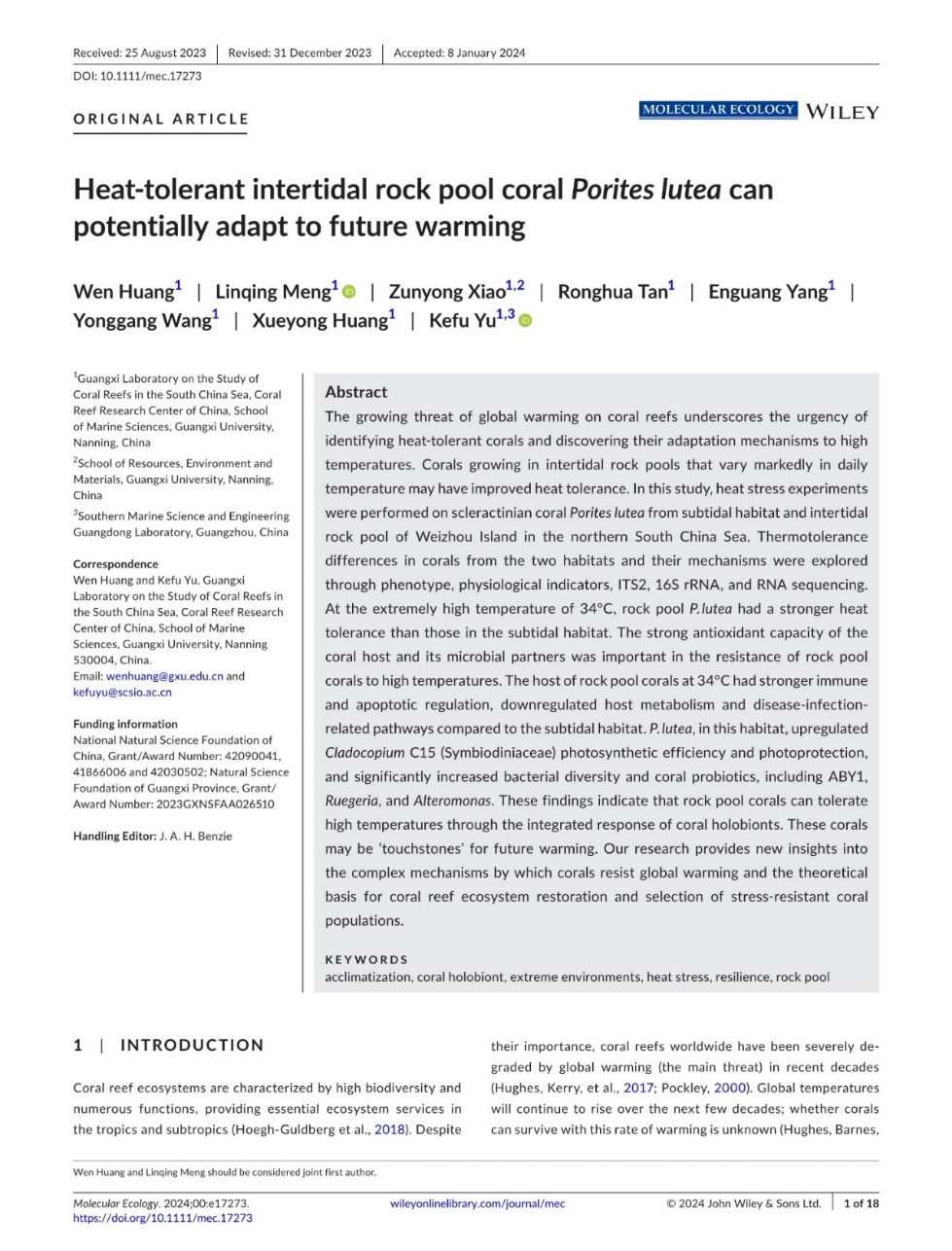Molecular Ecology: Heat-tolerant mechanism of intertidal corals
Recently, Associate Professor Huang Wen from the teaching and research section of Marine Biology and Ecology of our college and graduate student Meng Linqing, as co-first authors, had their research article "Heat-tolerant intertidal rock pool coral Porites lutea can potentially adapt to future warming" published in Molecular Ecology, a prestigious journal in the field of biological ecology.
Global warming is an increasingly serious threat to coral reefs, and it is urgent to explore heat-tolerant corals and discover their adaptation mechanisms to high temperatures. For corals, the intertidal zone is an extreme environment with intense temperature fluctuations, but corals in the intertidal zone can survive in this environment, thus it is a natural laboratory for studying the heat tolerance and adaptation mechanisms of corals. Previous studies have mostly focused on corals in the lagoon environment, while there have been very few studies on corals in the intertidal rock pools. Rock pools are shallower and smaller water pools than lagoons, with more intense daily temperature fluctuations, and corals living in them may have stronger heat tolerance. However, up to now, there have been almost no reports on the intrinsic molecular mechanisms of heat tolerance in corals in intertidal rock pools.
Therefore, in this study, heat stress experiments were performed on scleractinian coral Porites lutea from subtidal habitat and intertidal rock pool of Weizhou Island in the northern South China Sea. Thermotolerance differences in corals from the two habitats and their mechanisms were explored through phenotype, physiological indicators, ITS2, 16S rRNA, and RNA sequencing. At the extremely high temperature of 34°C, rock pool P. lutea had a stronger heat tolerance than those in the subtidal habitat. The strong antioxidant capacity of the coral host and its microbial partners was important in the resistance of rock pool corals to high temperatures. The host of rock pool corals had stronger immune and apoptotic regulation, downregulated host metabolism and disease-infection-related pathways compared to the subtidal habitat. P. lutea, in this habitat, upregulated Cladocopium C15 (Symbiodiniaceae) photosynthetic efficiency and photoprotection, and significantly increased bacterial diversity and coral probiotics, including ABY1, Ruegeria, and Alteromonas. These findings indicate that rock pool corals can tolerate high temperatures through the integrated response of coral holobionts. These corals may be ‘touchstones’ for future warming. Our research provides new insights into the complex mechanisms by which corals resist global warming and the theoretical basis for coral reef ecosystem restoration and selection of stress-resistant coral populations.
For more details, please refer to the article:
Huang Wen, Meng Linqing, Xiao Zunyong, Tan Ronghua, Yang Enguang, Wang Yonggang, Huang Xueyong, Yu Kefu. 2024. Heat-tolerant intertidal rock pool coral Porites lutea can potentially adapt to future warming. Molecular Ecology, 00, e17273. https://doi.org/10.1111/mec.17273
